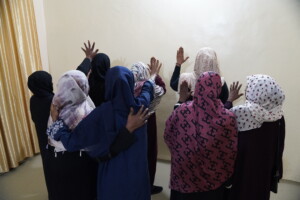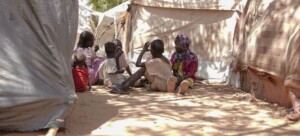Khartoum state closes school with cholera cases
The Khartoum state Ministry of Health closed a school in Jebel Awlia locality after more than 20 students suffered from diarrhoea. Five of them were infected with cholera.
The Khartoum state Ministry of Health closed a school in Jebel Awlia locality after more than 20 students suffered from diarrhoea. Five of them were infected with cholera.
State Health Minister Mamoun Humeida announced the news yesterday. He said maintenance will take place in the Nura Koran school in El Salam neighbourhood to provide safe drinking water and toilets, before allowing students to return. He did not specify a period of time for this.
Humeida pointed out that inspection rounds will be done in all the state's Koran schools. Schools that do not comply to the inspections will be closed.
Numbers of school students and pupils have fallen victim to the epidemic disease in various states of Sudan. At camp Otash in Nyala, ten schoolgirls were infected with cholera at the Abu Bakr El Siddig School on Monday and Tuesday. One of the camp sheikhs said that all the girls were discharged on Wednesday.
Reports reaching Radio Dabanga from Zamzam camp south of El Fasher, capital of North Darfur, recorded five new cholera infections on Monday, all basic school pupils according to a camp sheikh on Sunday.
In Sudan's Northern State, dozens of people became infected with cholera mid-August, especially in El Mahas in Daglo locality. This prompted two basic schools in Saadnafenti to close their doors as parents prevented their children from going.
In July, the National Consensus Forces (NCF) condemned the decision of Khartoum’s Ministry of Education not to postpone the start of the new school year because of the cholera epidemic. Last week two cases of cholera appeared in Khartoum North, after the capital of Sudan witnessed a relatively low infection rate for several weeks.
Protesting residents
Residents of El Almab village in Sharg El Nil locality, whose homes were demolished last year, renewed their demand that the authorities either re-plan the village, compensate them or find them appropriate alternative housing.
The spokesman for the aggrieved villagers, Mohamed Ahmed El Badri, told Radio Dabanga that “They have addressed all sides but have not found any response to their grievances.
“The families whose houses were demolished by the authorities last October amounted to 600 – a large number of them are still living in cottages in the area.”
In October 2016, also residents of El Jireif in Khartoum state took to the streets in protest against the confiscation of their lands.
On Thursday, residents staged an open-ended peaceful protest against the plans to turn a football field in the area into residential land in El Dabasin area in southern Kharotum.
Residents have set up a tent in the field and released a press statement, saying that they would not leave unless the government cancels the decision.
Follow #CholeraInSudan, #الكوليرا_السودان for ongoing coverage by Radio Dabanga











 and then
and then